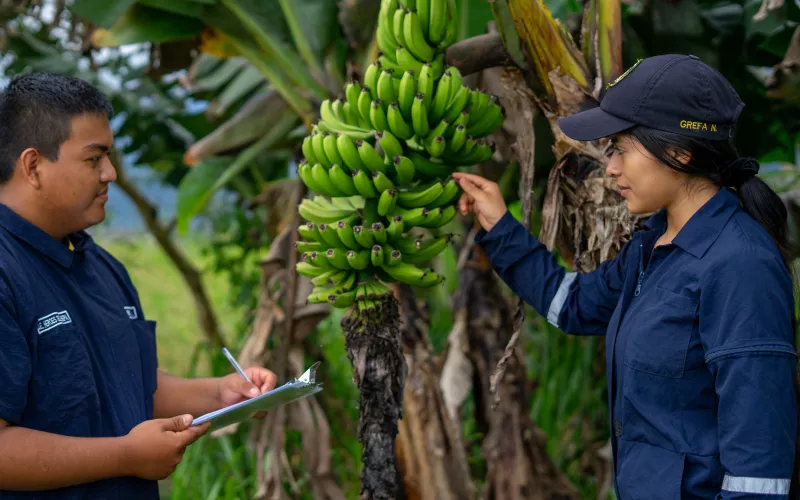Join our newsletter
By subscribing you agree to our Privacy Policy

As the climate crisis intensifies, education is emerging as a key driver in the global effort to build resilience and mitigate the worst effects of climate change, especially for future generations.
This year's United Nations Climate Change Conference (COP29) saw the launch of the Baku Initiative on Human Development for Climate Resilience, marking a decisive step toward driving global cooperation to integrate climate resilience into human development, with a focus on greening education and ensuring that environmental literacy becomes a central educational goal. This includes making school infrastructure more resilient and sustainable. By adopting the principles of this initiative, governments signal their commitment to transforming societies through education, encouraging young people to engage in climate action and advancing long-term sustainability. While raising awareness about climate change is essential, education has the potential to do far more. It equips individuals with the skills and mindset needed to rethink how we address the planet's future and respond to the climate crisis.
Education is crucial in tackling climate change, but it is the teachers—strengthened with the right training, tools and opportunities—who turn this potential into reality. At this year's edition of TeachersCOP, organised in partnership with the Office for Climate Education, we witnessed the richness of initiatives that teachers set up around climate change education, with over 120 submitted projects ranging from ocean floaters to upcycling waste.
Prioritising the place of teachers in climate education, the Government of Flanders is supporting VVOB’s initiatives in South Africa, Ecuador and the Flemish region of Belgium (Flanders), guiding teachers to integrate climate change into their curriculum and inspire action in their communities.
In South Africa, through the Keep it Cool project, teachers and school leaders are learning how to integrate climate change into their teaching practices. Highly reliant on rain-fed agriculture, South Africa is vulnerable to the impact of climate change and extreme weather. By focusing on professional development for educators, the project supports schools in engaging with climate change in meaningful ways. Schools have, for example, developed activities like establishing food gardens, composting organic waste and building eco-bricks and rainwater harvesting systems. This impactful work lays the foundation for the second phase of the project, as Sofie Tack, Grants Coordinator for VVOB, explains in this video.
In Ecuador, the CAMBIAR project addresses the country’s significant climate challenges by strengthening technical education in agriculture, a key economic sector and a major source of greenhouse gas emissions. The project equips teachers with the skills to prepare students for sustainable farming practices by integrating climate change education into existing and new professional development opportunities. For instance, the project is enhancing two online courses for technical agricultural teachers and developing two new online courses—one introducing climate-smart agriculture and another on project-based learning tailored to the agricultural sector.
Meanwhile, the S-Cool-Links platform encourages teachers to collaborate on climate action projects and exchange knowledge across borders. This interactive, online platform allows teachers to access scientifically accurate information about climate change, explore documented examples of climate change teaching activities across the curriculum and share insights with peers from other countries.
As these initiatives unfold in and outside classrooms around the world, young people are taking the lead in advocating for climate action as seen at COP29. They are increasingly driving the conversation on climate action, demanding urgent and comprehensive changes from policymakers. The importance of education in shaping climate-conscious citizens was underscored by findings from a study from UNESCO, where most young people (91 percent) indicated they learnt about climate change at school but expressed concerns about the quality of the education that they received with over one quarter (27 percent) revealing they cannot explain what climate change is.
Juan Daniel Quiroz Silva, winner of the Greening Schools category at TeachersCOP, beautifully captured the essence of the potential in young learners: “This climate crisis requires us to be very creative to teach the future. Children, especially the small ones, are curious and resilient, and have the capacity to imagine a new world. This constitutes the opportunities for a more fair, sustainable society, in harmony with planet Earth.”
Putting climate change in the curricula is just one part of the solution. As VVOB’s initiatives in Ecuador, South Africa and Belgium demonstrate, quality climate change education requires teacher training and making lessons applicable to local contexts. These are also the key demands from young people, outlined in UNESCO’s “Youth demands for quality climate change education” report.
The report found that nearly half of the 100 countries reviewed had no climate change mentioned in their national curriculum frameworks and almost one quarter (23 percent) of teachers lacked confidence in teacher climate change education.
Speaking at the COP29 Ministerial Roundtable on greening education and enhancing climate literacy metrics, Inge Vandevyvere, Global Strategic Education Advisor for VVOB, reminded panelists not to forget teachers’ experiences in developing targets and metrics for measuring climate literacy and developing climate change curricula.
Climate education is no longer optional. It is essential for building a sustainable, equitable future. The transformative work happening in classrooms worldwide is the foundation of meaningful change, yet educators and young people cannot shoulder this responsibility alone. Governments and policymakers must enact enabling policies and allocate resources to integrate climate education into national strategies. The private sector, too, has a pivotal role to play by partnering with schools to offer practical learning opportunities.
The urgency of the climate crisis demands collective action across all sectors and generations. By supporting educators, engaging youth and fostering global collaboration, we can cultivate a generation of climate-conscious citizens ready to tackle the challenges ahead. Together, we can confront the climate crisis effectively and build a more resilient, sustainable future for all.
Explore our technical brief on climate change education to learn more.
By subscribing you agree to our Privacy Policy
Julien Dillensplein 1 bus 2A
1060 Brussels
Belgium